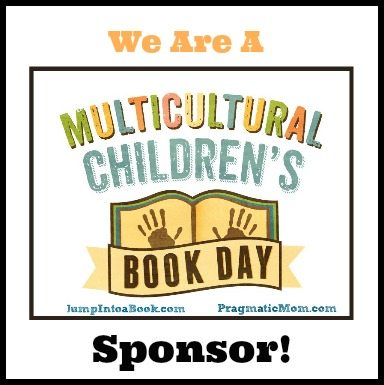Guest post by Anastasia K. Bond
And when they could not come near Him because of the crowd, they uncovered the roof where He was. So when they had broken through, they let down the bed on which the paralytic was lying. -Mark 2:4 (NKJV)
When you’re the parent of a kid who is “different,” having someone making Christ present to you feels like a miracle. Most of us would be ecstatic if we had someone like the friends of the paralytic, someone who would stop at nothing to bring us to the feet of Jesus. I always related to that story because cutting a hole in a roof to get my friend some help is just my style. Yet now, with an outside-the-box child, I sometimes wonder if I’m in the place of the paralytic.
We’re at a stage where getting to any church activities is a major battle. If we actually make it, it is rarely a time of spiritual refreshing. Getting my child through a service is messy and intense, and by the time we’ve made it through the communion line I’m ready to lose it all: mind, temper and any hope of connecting with other brothers and sisters in Christ. I probably come off as unsociable, but the truth is I’m at my limits. Against my nature, I’ve become more of a Martha than a Mary, so focused on circumstances that I’m missing what’s most important.
Or am I? I could give a long list of all the things I should be doing in church that I’m not, but what is it that I actually do? Are my own desires the roof-tiles that must be removed to place my child at Jesus’ feet?
I hope so. I hope that these faltering efforts are seen by a Master who knows how painful our human frailty really is.
And I wonder how many other paralytics wished they had such bold friends. If I think through the list of my truest friends, though, I remember the invisible wounds. I remember the abusive childhoods, the faltering marriages, the painful work situations, the hidden diagnoses.
Struggling to show up
Perhaps we’re all struggling to simply show up. Sometimes it seems like we’re all hiding grievous wounds. Sometimes it’s a struggle to just breathe through the day, whether we have a disability or if we’re just trying to help someone else make it through.
The novel I’m working on right now has this rotation of struggle. Sometimes the main character is fighting to save others, yet struggles most when she’s the one who needs to be saved. It’s a different kind of strength to let someone else do the hard work of bringing you to what you need.
We don’t get to pick and choose the fruits of the Spirit. The proportions fluctuate but the goals do not. A tremendous help in my writing career once came from an author who has a child with severe special needs. He gave me several hours of his precious free time, and I stand amazed. Our gifts to one another may look very different. Sometimes we give service. Other times, we must withhold ourselves from judging those who do not help us. And then there are the days when we can only offer our humility as we let someone meet us at our most broken moment.
About Anastasia Bond
Anastasia Bond writes fiction that explores the heart of service and the challenge of war. Her writing focus and her conversion to Orthodox Christianity developed together in 2006, and the sacrificial death of a Navy SEAL at the end of that year reconnected her to her military family roots. She lives in Oregon with her husband, son and three despotic cats. There’s a fair chance her novel may be published in the next two years . . . if she can stop revising it.
Follow Anastasia on Twitter, Facebook, or on her website.
Read More
Of Such is the Kingdom: A Practical Theology of Disability by Summer Kinard: This book is essential reading for pastors, church school teachers, godparents, and others who are responsible for developing the faith of children with disabilities.
Loving an autistic child at church: How does an autistic child in the church become an autistic adult who is still in the church? Love.
The Parable of the Great Feast: When the invited guests don’t come, the Master of the Feast sends his servants to the poor and the disabled, and tells his servants to compel them to come in.
Buy the Books!

These delightfully diverse books provide disability representation (Elizabeth, one of the main characters, is an ambulatory wheelchair user). They also give Orthodox Christian children the rare opportunity to see themselves in books, and children who are not Orthodox the chance to see cultural practices they may not be familiar with.
Catherine’s Pascha
FINALIST IN THE 2015 USA BEST BOOK AWARDS
Catherine doesn’t like vegetables. She doesn’t like naps. She doesn’t like it when her mom combs her hair. She loves hot dogs, chocolate cake, and her best friend, Elizabeth. Most of all, she loves Pascha! Pascha, the Orthodox Christian Easter, is celebrated in the middle of the night, with processions and candles and bells and singing. And Catherine insists that she’s not a bit sleepy.
Celebrate the joy of Pascha through the magic of a book: Catherine’s Pascha. Available on Amazon, Bookshop.org, and my webstore.
The Saint Nicholas Day Snow
Shoes or stockings? Horse or sleigh? Does St. Nicholas visit on December 6 or on Christmas Eve? Will a little girl’s prayer be answered? When Elizabeth has to stay at Catherine’s house, she’s worried about her grandmother, and worried that St. Nicholas won’t find her. The grownups, though, are worried about snow.
Celebrate the wonder of St. Nicholas Day through the magic of a book: The Saint Nicholas Day Snow. Available on Amazon, Bookshop.org, or my webstore.



